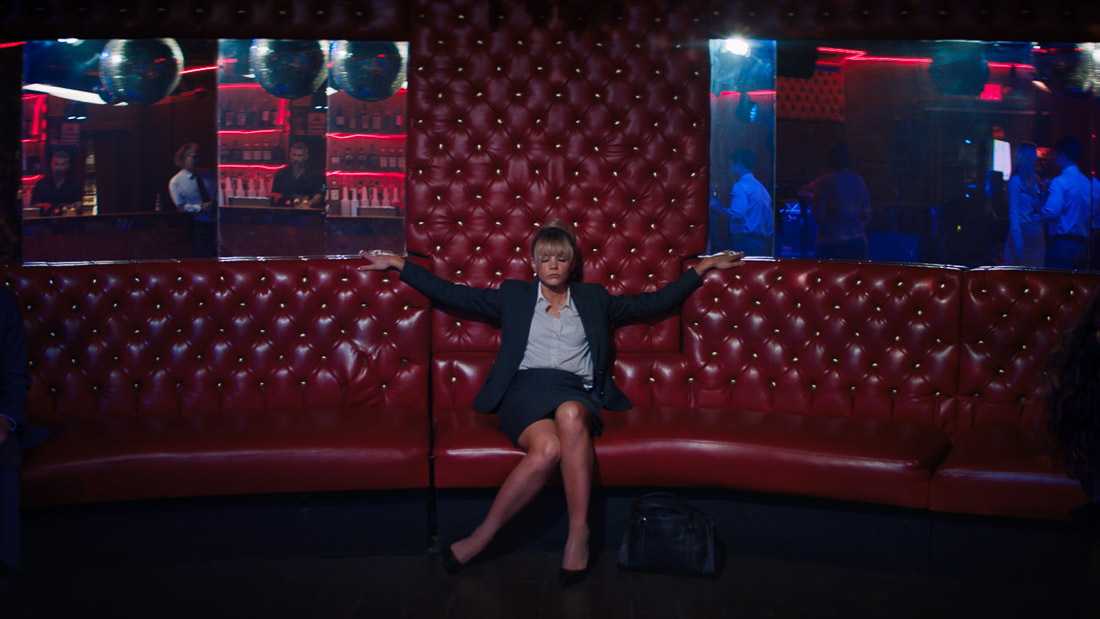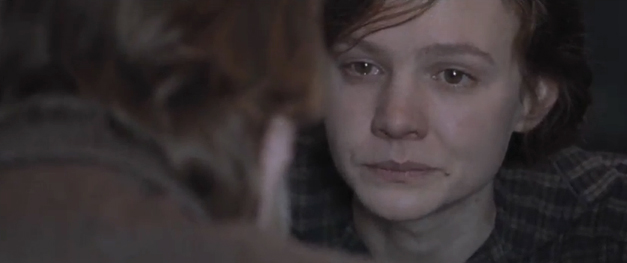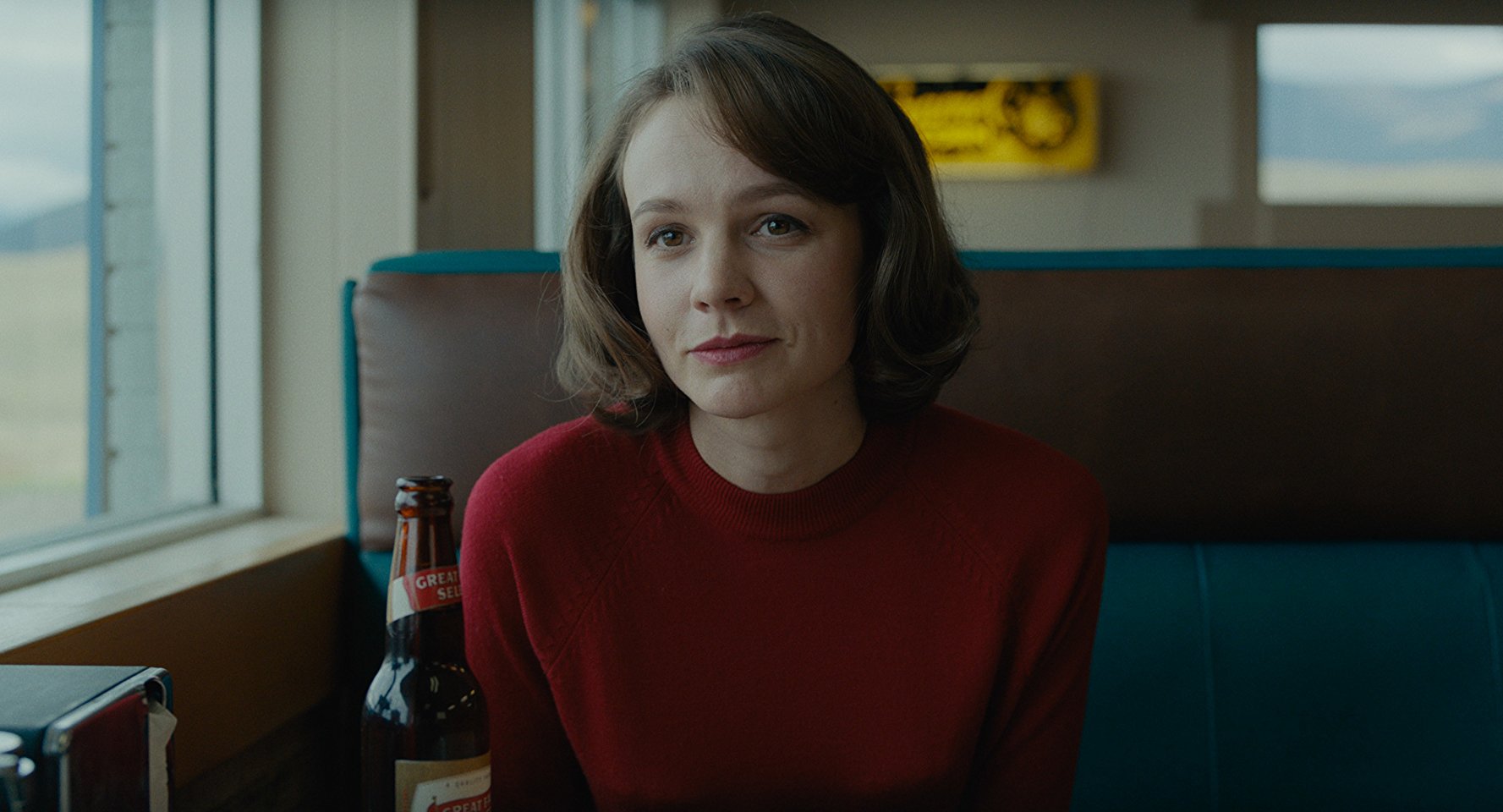by Christopher James
 Carey Mulligan patiently waits for her second Oscar nomination for Promising Young Woman.Carey Mulligan has repeatedly proved that she is one of the most talented actors in Hollywood. Yet, she has still not received an Oscar nomination since her breakout performance in 2009’s An Education. With great reviews and a Best Actress win from the Los Angeles Film Critics Association, Mulligan’s performance in Promising Young Woman could (finally) be the ticket to a second nomination...
Carey Mulligan patiently waits for her second Oscar nomination for Promising Young Woman.Carey Mulligan has repeatedly proved that she is one of the most talented actors in Hollywood. Yet, she has still not received an Oscar nomination since her breakout performance in 2009’s An Education. With great reviews and a Best Actress win from the Los Angeles Film Critics Association, Mulligan’s performance in Promising Young Woman could (finally) be the ticket to a second nomination...
Lone Scherfig 2009 film cast Mulligan, then best known as a supporting player in Pride and Prejudice, as Jenny, a sixteen year old wunderkind who must decide between marrying a rich older man or pursuing college. She didn’t just earn rave reviews, she also rode precursor success all the way to a Best Actress nomination. Before The Blind Side opened and became a smash hit, the prevailing narrative was the Best Actress race would come down to Meryl Streep (Julie & Julia) versus the ingenues (Mulligan and Gabourey Sidibe for Precious: Based on the Novel Push by Sapphire).
Regardless of the outcome, many expected us to see Carey Mulligan back on the Oscar stage soon. In some ways, Jennifer Lawrence got the career people expected from Mulligan. Lawrence starred in a well received indie film and cashed in her Oscar nomination for a franchise, three more Oscar nominations and a win. However, Mulligan’s post-nomination path was quite a lot different.
While an Oscar nomination gets an actor in the door of the Academy, their choices immediately following that nomination dictate when and if they’ll find their way back. In An Education, Mulligan won audiences over with her effervescence and wise-beyond-her-years charm. She felt most akin to a modern day Audrey Hepburn, exhibiting a star persona that blended authentic excitement and polish. Her projects immediately following both felt engineered for two types of Oscar narratives. The adaptation of Never Let Me Go, had Oscar written all over it. Yet, the chilly reception to the film and her performance gave her the perception of a “prestige actress,” something her co-star Keira Knightley always struggled with (how often did you hear “does she pick any projects that don’t put her in a corset?”). Her role as “the girlfriend” in the Wall Street: Money Never Sleeps was supposed to introduce Mulligan to a wider audience, but instead put everyone to sleep.
Carey Mulligan delivers an incredible and character specific rendition of "New York, New York" in "Shame."
Likely most of her 2010 projects were filmed before her breakout Oscar nomination. Her 2011 projects, which were likely her first choices after the nomination, were a better approximation of her shrewd gifts. Her role as the emotionally volatile lounge singer, Sissy, in Shame upped the ante of the talent she showcased in An Education. Her rendition of “New York, New York” proved she could make the camera hang on her every word as she weaved a tale of a tortured soul nursing feelings and wounds left by her family, her brother Brandon (Michael Fassbender) in particular. Throughout the movie, she attempts to pull herself closer to Brandon, only to pick fights that push each of them to their breaking points. Fassbender and Mulligan both use sexuality as weapons they later regret. Together they create a messed up sibling portrait that is impossible to forget.
In the same year, she co-starred in Drive as Irene, a single mother who becomes the object of desire and attraction to Ryan Gosling’s mysterious driver. On the page, the role feels like an underwritten stock character not unlike her “girlfriend” role in Wall Street: Money Never Sleeps. However, her unspoken chemistry with Gosling breathes new life into the archetype. Since the film is light on dialogue, it forces both actors to rely on their faces to communicate the plot turns. Gosling underplays it, while Mulligan masters a “deer in the headlights” look, especially during a particularly grueling elevator battle.
The Critics Choice Awards went for Mulligan in Supporting Actress for Shame. Meanwhile, the BAFTA Awards nominated her in the same category for Drive. With an NC-17 rating, Shame proved to have too much sex for Oscars, while Drive had too much violence. This year was likely the closest she came to that second Oscar nomination.
It would be a few years before she started receiving awards accolades again. Her roles all fell into the category of “self serious dramas” that people knocked her for when she did Never Let Me Go. While Inside Llewyn Davis won critical raves, her role as Jean only allowed her to play a few sour notes. Far From the Madding Crowd was a beautiful romance where she had terrific chemistry with co-star Matthias Schoenaerts. Unfortunately, despite arthouse success too few awards voters remembered the film. People did see her in 2013’s The Great Gatsby, where she played the dissatisfied socialite Daisy Buchanan. As Mia Farrow found out when she played the part in 1974, it’s a hard role to pull off and works better in novel form.
 Every great actress deserves a chance to rise above Oscar-bait material.
Every great actress deserves a chance to rise above Oscar-bait material.
Suffragette ranks as one of her most underrated roles. The movie may be very on the nose and a bit overcooked. Yet, Mulligan elevates the film thanks to her steely, central performance as Maud Watts, a young laundress who finds her way to the suffragette movement. She expertly dramatizes what Maud has to give up to fight for her rights. There’s an incredibly emotional scene where, after being denied custody of her kids, she performs a silent show out in front of their window. There’s so much pain in her eyes as she tries to get her kids to laugh and enjoy themselves. Mulligan knows how to effortlessly add texture to a scene without any words. She possesses a movie star’s power to command and direct attention. The movie initially had Oscar buzz, but soon faded from the conversation once reviews proved middling.
Awards attention came in the form of ensemble awards a few years later in 2017 for Dee Rees’ Mudbound. The film examined the fractured relationship between two farming families - one white and one black - in post-WW2 Mississippi. Mulligan plays Laura, a housewife who lusts after her brother-in-law. She expertly conveys Laura’s weariness. However, Mudbound succeeds because each actor works in harmony with each other, creating a richly realized portrait of two families whose conflict comes from shared interest. Mary J. Blige became the sole nominee of the bunch, though many also had buzz, including Mulligan in lead and Jason Mitchell and Garrett Hedlund in supporting.
 More people should discover Carey Mulligan's terrific performance in Paul Dano's "Wildlife."The best was yet to come, as Mulligan delivered a stunning portrayal of suburban depression in 2018’s Wildlife, directed by Paul Dano. Mulligan stars as Jeanette, a Montana housewife whose marital dissatisfaction grows when her husband abandons her and her son for a job as a firefighter. Jeanette convinces herself that there’s no path forward for her if she stays loyal to her husband. She embarks on an affair with one of the richer members of the town, swallowing her pride to get ahead. So much of the movie is carried on Mulligan’s frozen gaze. Jeanette at one point asks her son, “If you’ve got a better plan for me, tell me. I don’t have one.” She’s run out of options to survive, so she’s not going to apologize for her indiscretions. Mulligan only saw an Indie Spirit nomination for her performance. However, those who have seen the film have championed her layered and committed performance (including here at this site).
More people should discover Carey Mulligan's terrific performance in Paul Dano's "Wildlife."The best was yet to come, as Mulligan delivered a stunning portrayal of suburban depression in 2018’s Wildlife, directed by Paul Dano. Mulligan stars as Jeanette, a Montana housewife whose marital dissatisfaction grows when her husband abandons her and her son for a job as a firefighter. Jeanette convinces herself that there’s no path forward for her if she stays loyal to her husband. She embarks on an affair with one of the richer members of the town, swallowing her pride to get ahead. So much of the movie is carried on Mulligan’s frozen gaze. Jeanette at one point asks her son, “If you’ve got a better plan for me, tell me. I don’t have one.” She’s run out of options to survive, so she’s not going to apologize for her indiscretions. Mulligan only saw an Indie Spirit nomination for her performance. However, those who have seen the film have championed her layered and committed performance (including here at this site).
When Carey Mulligan earns her second Oscar nomination for Promising Young Woman (we're choosing to be optimistic), it will be richly deserved. This is not just because her work as Cassie, the vengeful crusader against date rapists, is the best of her career. The second nomination will also reward the past decade of interesting performances that were ignored or written off. Carey Mulligan is a much more interesting actress than she is given credit for. Thus, the accolades this year are even more richly deserved.